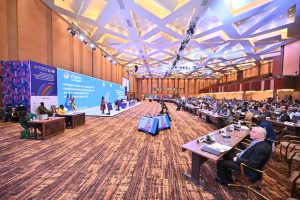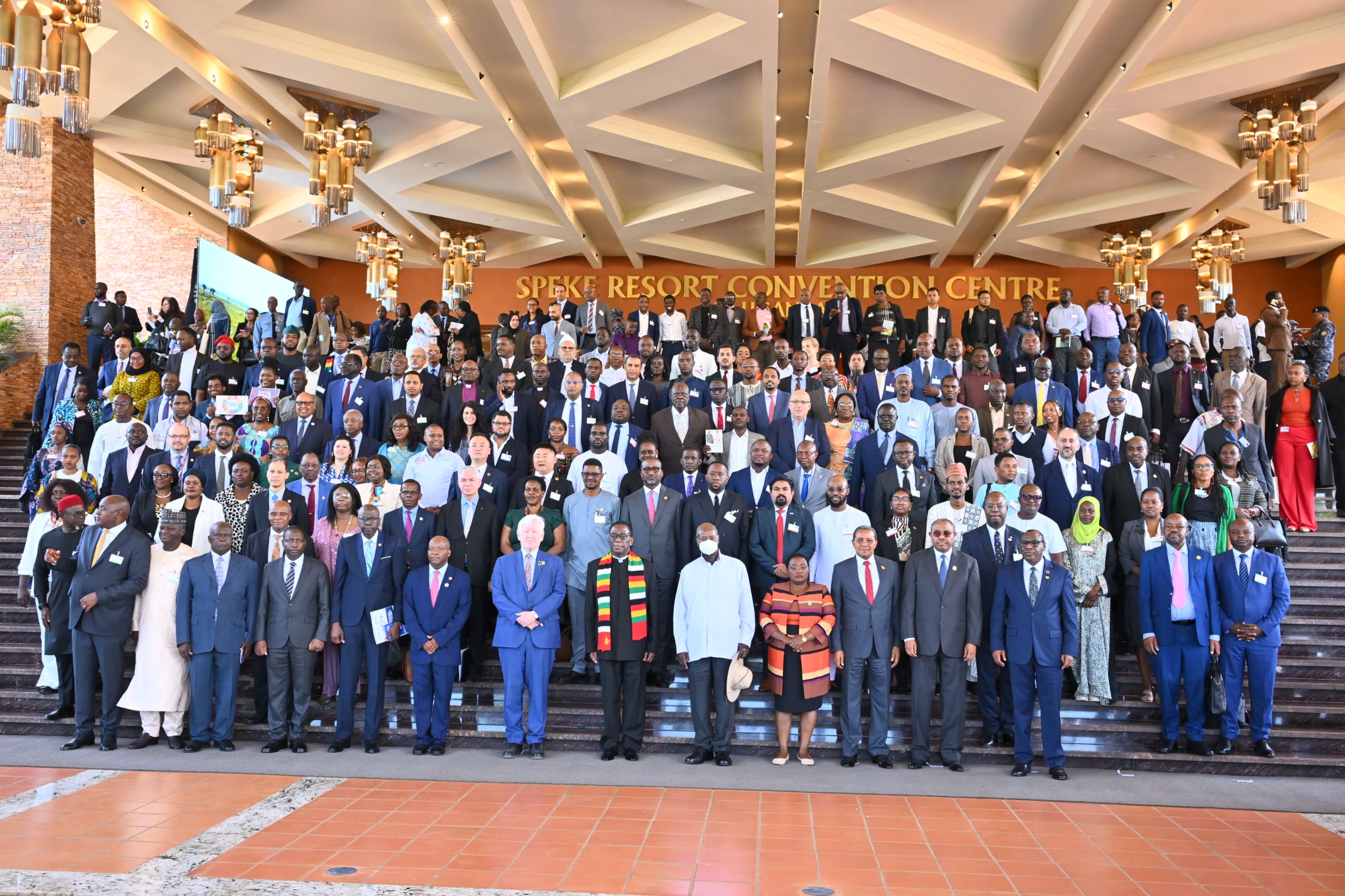By: Ismael Kasooha
MUNYONYO
President Yoweri Museveni has called upon African countries to adopt home-grown development strategies and enhance regional integration to drive sustainable growth and development on the continent.
“The solutions are with us. Over-reliance on foreign support could undermine long-term progress,” said Museveni.
The president gave an example of Uganda’s resilience after Western nations withdrew financial support over policy disagreements, pointing out that despite the World Bank halting loans and Uganda’s removal from AGOA, the country’s economy grew by 6%.
Museveni was on Wednesday presiding over the opening of the 11th Session of the Africa Regional Forum on Sustainable Development (ARFSD) at the Speke Resort Convention Centre in Munyonyo, Kampala.
At the event, the President was accompanied by H.E Emmerson Dambudzo Mnangagwa, the President of the Republic of Zimbabwe and the First Lady and Minister of Education and Sports, Maama Janet Museveni.
The Africa Regional Forum on Sustainable Development (ARFSD) is an annual platform convened by the United Nations Economic Commission for Africa (UNECA) in collaboration with the African Union and host governments.
Here in Uganda, the Forum was coordinated by the Office of the Prime Minister.
The President made it clear that there was a need for African countries to reduce their dependency on external aid and take control of their development agendas.
The three-day forum, under the theme “Driving job creation and economic growth through sustainable, inclusive, science and evidence-based solutions for the 2030 Agenda and Agenda 2063,” attracted leaders and experts to discuss Africa’s development priorities.

Leaders at the podium attending the SDG Conference for Africa at Speke Resort and Conference Center Munyonyo
The President’s speech was punctuated by video clips showcasing Uganda’s development journey and the progress so far made in industrialization and value addition on crops that were deemed food crops by the colonialists. He explained Uganda’s transformation journey, from a subsistence economy in 1900 to a modern, diversified economy currently.
Museveni detailed Uganda’s economic evolution through various phases, including the restoration of the colonial-era enclave economy, expansion of key exports like coffee, and diversification into sectors such as dairy, fish, and ICT.
The President emphasized initiatives like Operation Wealth Creation (OWC) and the Parish Development Model (PDM), both central to reducing subsistence production, with agriculture serving as a key pillar for job creation.
He noted that utilizing just 7 million acres of Uganda’s 40 million acres of arable land could create 105 million jobs.
“Economic growth must be accompanied by transformation,” Museveni said, warning that “sustainable growth without transformation is a recipe for perpetual underdevelopment.”
He called for investment in transport infrastructure, affordable electricity, and reducing raw material exports.
Canada’s Ambassador to the UN, Robert Keith Rae, highlighted Africa’s crucial role in achieving the Sustainable Development Goals (SDGs).
Keith urged global solidarity to address climate change, education, and economic justice, criticizing global trade barriers that hinder development.
The United Nations Deputy Secretary-General Amina Mohammed, who addressed the conference virtually, stressed the importance of local solutions and pointed to Africa’s growing debt burden as a key challenge.
“More than 60% of African countries spend a large portion of their revenue on debt servicing. There is a need for a shift in development financing and more inclusive policies,” Amina noted.
Claver Gatete, the Executive Secretary of the UN Economic Commission for Africa (UNECA), praised Uganda’s progress and President Museveni’s leadership.
Gatete appealed to African countries to leverage the continent’s youthful population through skills development and vocational training.
“There are four strategic pillars to accelerate SDG progress: curbing illicit financial flows, unlocking domestic capital, expanding financial access for women and youth, and maximizing the African Continental Free Trade Area (AfCFTA),” he said.
H.E Emmerson Dambudzo Mnangagwa, the President of the Republic of Zimbabwe during the Presidential dialogue said that it was high time that African countries worked together to address the prevailing challenges.
End





